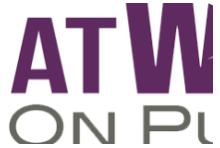What began in 2003 as a small group of invested Cincinnatians looking to provide a means to support employees on their journeys of living out their faith and purpose is now a global network of over 15,000 people who are intentionally living out their unique vocations in such a manner that benefits their cities and regions as a whole through their collective impact. AWOP serves employees primarily in the Greater Cincinnati region in multiple ways, among which are its multi-generational ... Leggi tutto
What began in 2003 as a small group of invested Cincinnatians looking to provide a means to support employees on their journeys of living out their faith and purpose is now a global network of over 15,000 people who are intentionally living out their unique vocations in such a manner that benefits their cities and regions as a whole through their collective impact. AWOP serves employees primarily in the Greater Cincinnati region in multiple ways, among which are its multi-generational ‘Collaboratory’ (collaborative laboratory) program, the ‘Company of Character’ profile for workplaces to engage in visioning and team-building exercises, its city transformation-focused City Impact Initiatives work, and its recently revamped ‘Stages of Service’ model.
The face of the marketplace forever changed in the wake of the Covid-19 pandemic, which has left both positive and negative impacts in its wake. Some organizations and their people flourished in the move to remote work to the extent that they chose to move their operations to be fully remote for the foreseeable future. For others, though, the move to working virtually and growing accustomed to the related changes has increased mental health issues and loneliness. The most up-to-date data surrounding social isolation compiled by the Centers for Disease Control & Prevention shows that 40.3% of adults feel they do not have adequate social connection, four-and-a-half years after the Covid lockdowns were implemented. This is down from 61% of Americans reporting loneliness in 2020. Young adults (ages 18-24) have experienced loneliness and mental health struggles on a severely increased scale, with almost 80% of those surveyed by the CDC in 2021 reporting they felt lonely, stressed, and were dealing with the increased risk of depression and anxiety. A 2023 survey completed by Microsoft for their Work Trends Index indicated that approximately 60% of remote employees were experiencing an increase in social isolation and, therefore, an increased risk and struggle of related mental health issues.
Since its launch in 2003, the culture of At Work On Purpose has been founded on the dynamic of people of faith coming together to pursue what it means to be faith-active within their marketplace spheres of influence. At Work On Purpose has a tested and proven approach to executive roundtables called “Collaboratories,” a mashup of ‘collaborative laboratories.’ Over the past two years, At Work On Purpose has developed this program to more intentionally promote intergenerational experiences tailored to each ‘stage’ of professional life. Based upon the findings of Harvard University’s Human Flourishing Program, AWOP has embraced the pathways of Work and Religious Community in the formation of its ‘Stages of Service’ model. Breaking ones career into four stages — Young Professionals (ages 20-35), Experienced Professionals (ages 35-50), Veteran Professionals (ages 50-65), and Legacy Professionals (65+) — Collaboratories allow for learning and mentorship to organically take place between members of each stage who are involved in these groups based upon the typical struggle faced in each stage. AWOP leadership is currently framing out specific curricula for the other three stages, with the goal of threading all four together through the formation of intentionally intergenerational Collaboratories. Small groups with members ranging in age from 20-80 years and everywhere in between will allow for organic mentorship and discipleship to take place as members share an authentic experience of pursuing growth and maturity in the synchronicity of their faith and work lives.
When taken into consideration with the other two Human Flourishing pathways of Education and Family, Collaboratories are helping people find innovative solutions to the constraints they face in all areas of their lives. A recent survey of Collaboratory members revealed that they see their participation as beneficial for gaining teaching and training, community and networking, support and encouragement, exchange of ideas and perspectives, leadership and business guidance, personal and spiritual growth, and wisdom and insight. Based upon their feedback, AWOP leadership is planning to trial some different approaches in addition to working on stage-specific curricula to see how the indicated benefits might further positively affect Collaboratory members, including increased community involvement, concerted efforts for recruitment and growth, and establishment of intentional prayer support.
Measurable outcomes for the 2025 calendar year are as follows:
1. At least 75% of Collaboratory members will say they feel more equipped to be faith-active at work than they did at the beginning of the year.
2. At least 90% of Collaboratory members will say they feel more connected to their peers than they did at the beginning of the year.
3. At least 65% of Collaboratory members will say they feel more connected to members of other generations than they did at the beginning of the year.
4. At least 75% of Collaboratory members will say they have made progress toward a problem they faced at the beginning of the year.
5. At least 20% of Collaboratory members will say that they are actively practicing what they have learned in areas outside of their workplace as well.
Nascondi testo completo
